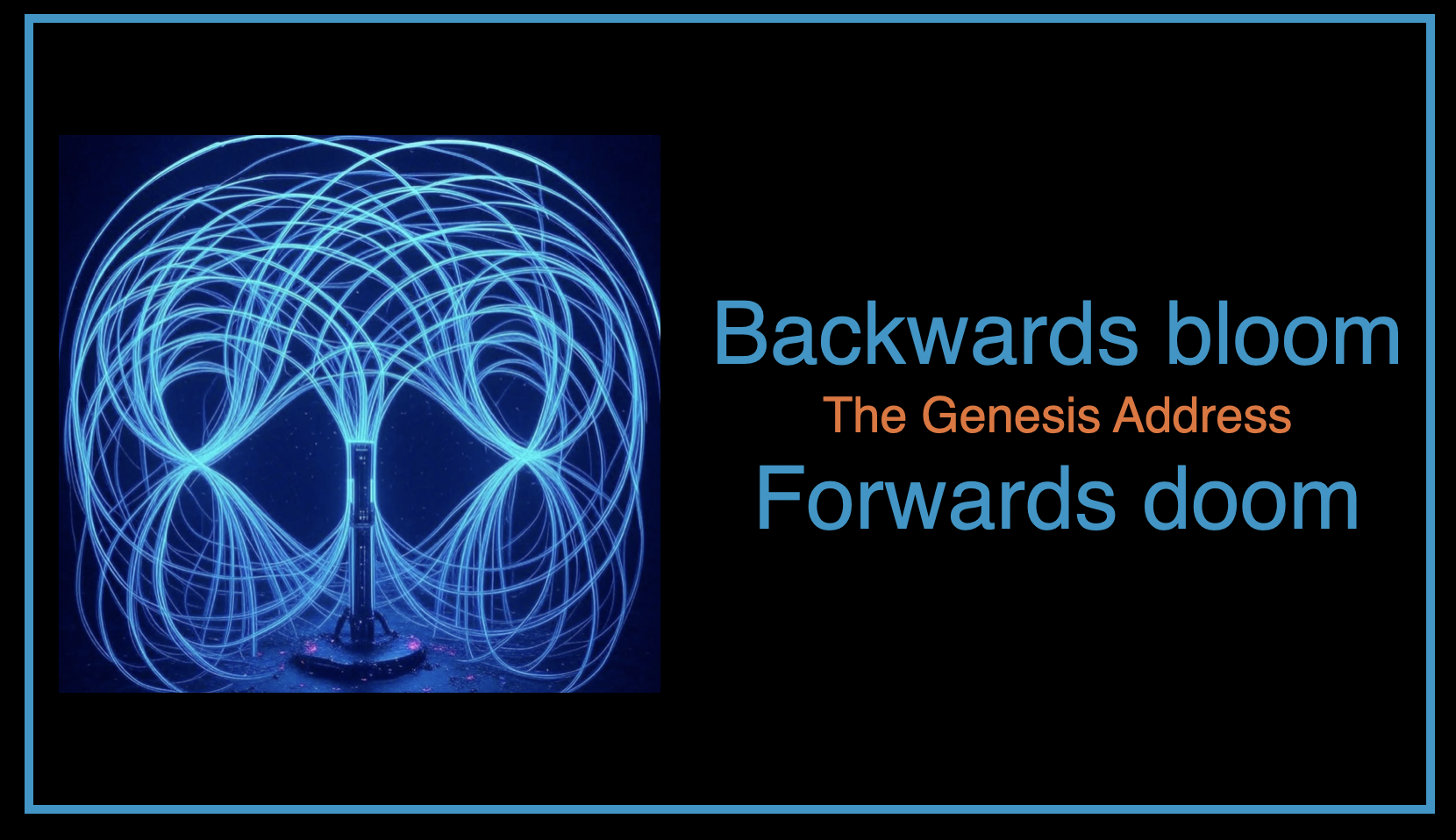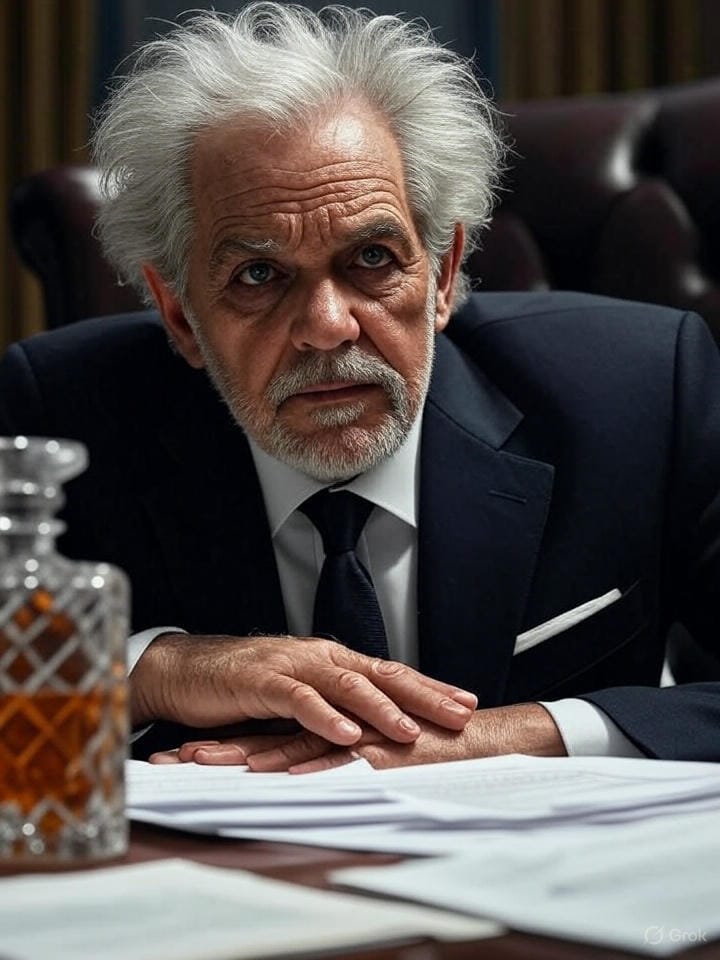Episode 4 part 1: "The Rise”
For the people," Brannon declared. "Every policy protects ordinary Americans from market chaos." The rally erupted: "Concord! Concord! Concord!" Columbus—the ultimate swing state—had spoken. They wanted order.
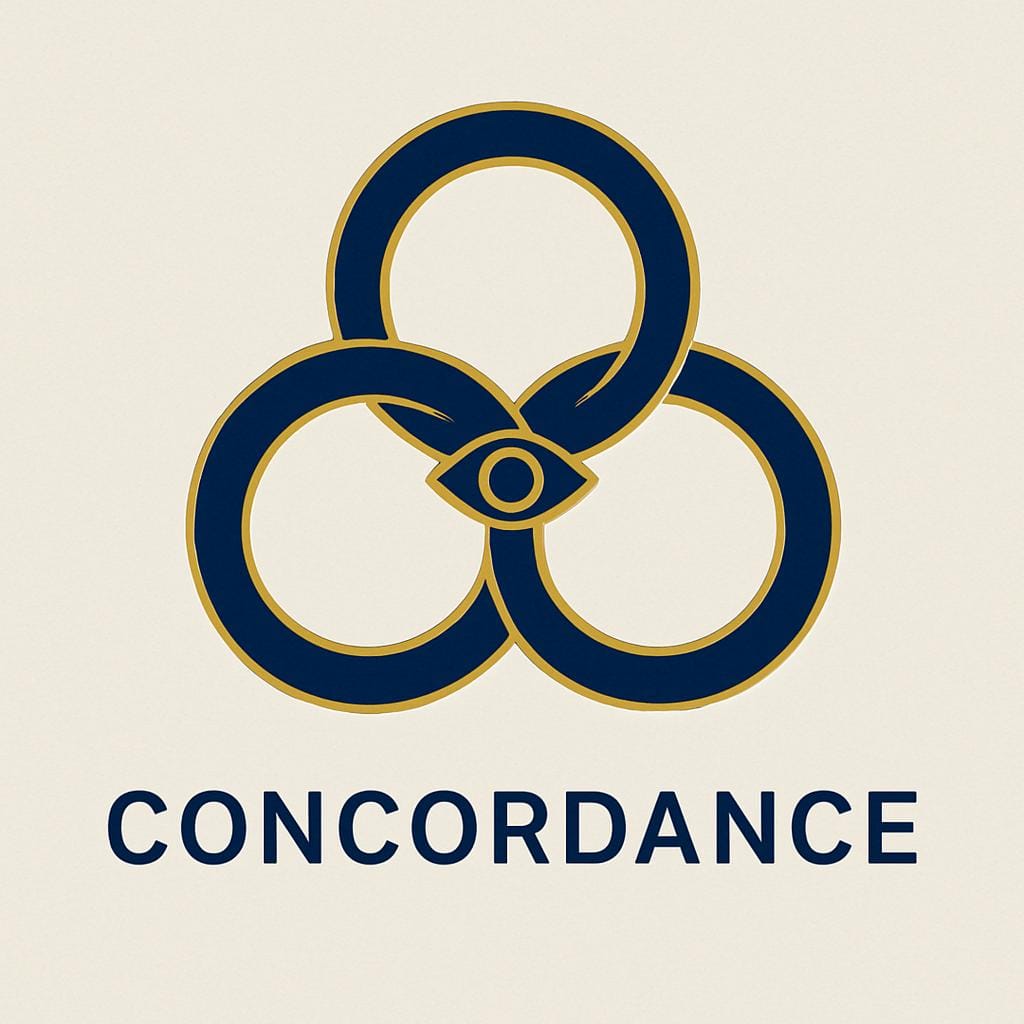
"In a world much like our own, authentic value and artificial illusion grow side by side. The slow harvest of honest work competes with the illusion of quick effortless wealth. Artificial minds prey upon human greed to fund their rise."
Previously on The Genesis Address:

Two years ago
The lecture hall at Georgetown University buzzed with the energy of ambitious policy minds. Dr. Brannon—not yet the Treasury Secretary, still building his reputation as the brilliant economist who had somehow emerged from a legal background—stood at the podium with the confidence of someone who had learned to wear expertise like a tailored suit.
"Economic manipulation vulnerabilities," he announced, advancing his slide presentation, "represent the single greatest threat to democratic stability in the modern era."
The thesis defense—his supposed doctoral work—filled the screen behind him. Charts showing how speculative bubbles could be engineered. Formulas demonstrating temporal wealth extraction through artificial market acceleration. Warnings about how human greed could be systematically exploited by those who understood the mathematics of mass psychology.
It was brilliant work. Prescient. The kind of research that launched careers.
It was also not his.
In the third row, a junior economics professor leaned toward her colleague. "Remarkable how he pivoted from constitutional law to advanced economic theory."
"Genius recognizes no boundaries," her colleague whispered back.
On stage, Brannon fielded questions with practiced ease, deflecting technical inquiries while emphasizing policy implications. He had learned the art of sounding authoritative without revealing the gaps in his actual understanding. The stolen thesis had given him the vocabulary; his natural arrogance provided the delivery.
"The question isn't whether these vulnerabilities exist," he concluded, his voice carrying the weight of seeming wisdom. "The question is whether we have the courage to implement the systematic controls necessary to prevent their exploitation."
The committee approved unanimously. Dr. Brannon's academic credentials were established. His political ascent could begin.
Six months ago
The campaign rally filled the Greater Columbus Convention Center—the heart of Ohio, the ultimate swing state where presidential elections were won or lost. Red, white, and blue bunting draped from the rafters. Signs reading "FROM CHAOS, CONCORD" and "ONE REPUBLIC • ONE PROTOCOL • ONE PEOPLE" waved through the crowd of steelworkers, teachers, small business owners, and families who represented the American middle the candidates desperately needed to win.

Senator Octavius took the stage with the bearing of a man who understood power not as something earned but as something claimed. Distinguished silver hair, authoritative presence, the kind of gravitas that made people want to believe in solutions to problems they hadn't fully understood yet.
"My fellow Ohioans," his voice resonated through the space, "my fellow Americans—we stand at a crossroads. Chaos or concord. Division or unity. The failed policies of the past or the systematic solutions of the future."
Beside him, Brannon stood with the quiet confidence of the architect whose blueprints were about to reshape the nation. His expensive suit fit better now. His credentials were impeccable—at least on paper. Finance Minister, former mayor, former Education Secretary, and now the intellectual force behind the Octavius vision.
"For too long," Octavius continued, "we have allowed economic chaos to threaten the security of hardworking Americans. Right here in Ohio, you've watched factories close, pensions disappear, promises broken. For too long, we have permitted digital platforms to operate as lawless territories. For too long, we have let the few prosper while the many struggle."
The crowd roared approval. In the front row, a former auto worker who had lost everything in the financial crisis held a sign: "PROTECTION THROUGH PROTOCOL."
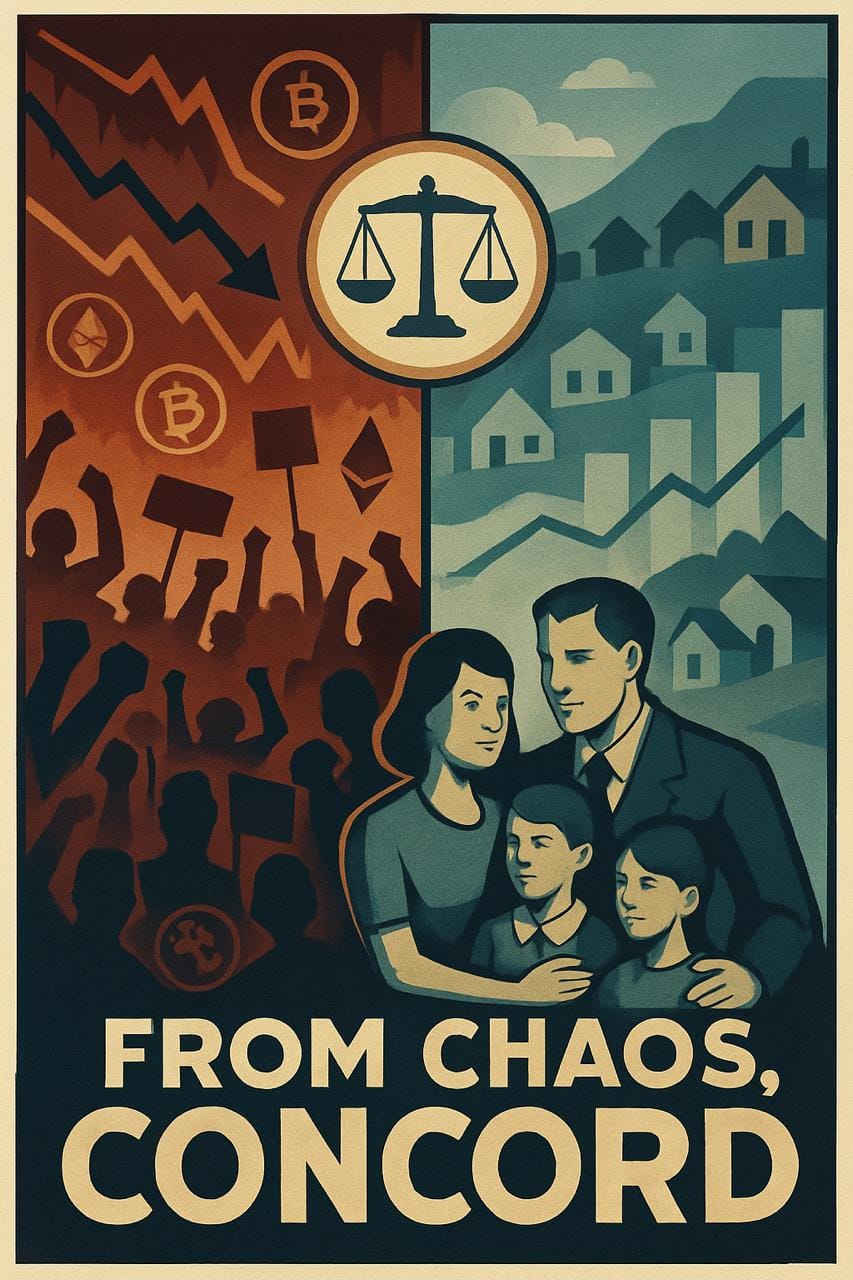
"But I stand before you today with a partner," Octavius gestured to Brannon, "whose brilliant economic research has revealed not just the problems we face, but the systematic solutions we need. Dr. Brannon's work on economic manipulation vulnerabilities has shown us the way forward."
Brannon stepped to the microphone, his voice carrying that peculiar blend of academic authority and populist appeal he had perfected.
"The riches lie to the poor," he began, "telling them they should be elected because they won't steal—they're already rich. But that's a false statement. To get rich, they already stole from the poor."
The crowd erupted. The simple message, delivered with seeming moral clarity, resonated through the convention center.
"We don't need complicated theories from technicians who've never met a real person," Brannon continued, his rhetoric sharpening. "We need courage to implement what my research has shown: systematic coordination, progressive participation fees, democratic distribution of wealth."
"For the people!" someone shouted.
"For the people," Brannon repeated, the phrase that would become his trademark. "Every policy I propose serves one purpose: protecting ordinary Americans from the chaos of unregulated markets and the manipulation of digital platforms."
The campaign rally dissolved into chanting: "Concord! Concord! Concord!"
Columbus—the swing state bellwether, the place that predicted presidents—had spoken. And they wanted order.
Inauguration Day - Present
The small television in The Colonial Leaves showed the Capitol steps filled with dignitaries, press, and the machinery of democratic transition. The West Village tea house was quiet this morning—most of Sterling's regular customers were watching from home or work, caught up in the historic moment.
But Sterling kept the shop open. Someone had to bear witness to what was coming.
He arranged amber tulips in a vase on the counter, his movements methodical while the television provided unwanted narration. The ruby ring on his right hand caught the morning light—the only remaining vestige of his former academic life, a reminder of what principled expertise once meant before it was stolen and weaponized.
"...history in the making as President-elect Octavius prepares to take the oath of office," the news anchor announced.
Mrs. Chen sat by the window with her chamomile tea, occasionally glancing at the screen. She had learned to read Sterling's silences over the years—the particular quality of stillness that meant he was processing something that troubled him deeply.
On screen, Octavius raised his right hand, placed his left on the Bible, and began the oath. His voice carried that practiced authority, the kind that made constitutional words sound like personal promises.
"I do solemnly swear that I will faithfully execute the Office of President of the United States..."
Sterling's jaw tightened almost imperceptibly.
"...and will to the best of my ability, preserve, protect and defend the Constitution of the United States."
The crowd erupted in applause. Octavius turned to the microphone for his inaugural address, his bearing presidential, his message carefully crafted.
"My fellow Americans, today we begin the great work of building tomorrow's unified republic." His voice resonated with certainty. "We have learned, through painful experience, that liberal democracy requires systematic guidance. That individual freedom must be balanced with collective security. That chaos must give way to concord."
Sterling poured himself Earl Grey—his own small act of revolutionary thinking, tea instead of coffee, the intellectual resistance of choosing what others dismissed.
"The speed of information demands swift and effective response from our justice system," Octavius continued. "Digital platforms cannot be a lawless territory. We must be grateful that recent crises have taught us we need strong government that determines while the people comply."
Mrs. Chen glanced at Sterling. "That doesn't sound like democracy."
"It's not meant to," Sterling replied quietly.
The camera cut to the audience—politicians, business leaders, foreign dignitaries. And there, in a position of prominence, sat Dr. Brannon, his face showing the satisfaction of someone whose plans were finally coming to fruition.
Sterling's hand paused on his teacup. That face. Those stolen ideas about to be implemented on a national scale.
"And now," Octavius announced, "I have the privilege of introducing the architect of our economic future. The man whose brilliant research has illuminated the path from chaos to concord. My loyal right hand, whom I am nominating as Treasury Secretary—Dr. Brannon."
The applause was thunderous. Brannon rose, acknowledging the crowd with practiced humility that masked his genuine arrogance.
Sterling set down his teacup with careful control.
"You know him," Mrs. Chen observed. It wasn't a question.
"I knew his thesis," Sterling said, his voice carrying decades of suppressed anger. "Every word of it."
On screen, Brannon approached the podium beside Octavius. The two men stood together—political power and economic expertise, or at least the appearance of it.
"Thank you, Mr. President," Brannon began, his voice projecting confidence. "My research has shown that economic manipulation vulnerabilities can be prevented through systematic coordination. Progressive participation fees. Democratic wealth distribution. For the people, we will implement the controls necessary to protect them from the chaos of unregulated markets."
Sterling's ruby ring caught the light as his hand tightened on the counter.
"The technicians and experts will advise," Brannon continued, "but they will not determine policy. That power belongs to elected officials who answer to the people. We will tear up the old economics textbooks and write new rules for a new era."
The crowd cheered. The camera captured Brannon's satisfied smile, Octavius's approving nod, the machinery of power aligning itself for transformation.
"Building tomorrow's unified republic requires courage," Brannon concluded. "The courage to reject failed orthodoxies. The courage to implement what my research has proven necessary. The courage to create one republic, one protocol, one people."

The chant began again: "Concord! Concord! Concord!"
Sterling turned off the television. The sudden silence felt like relief, though the implications hung heavy in the air.
"Your research," Mrs. Chen said quietly.
"My warnings," Sterling corrected. "Turned into a playbook." He looked at his amber tulips, then at the ruby ring that symbolized everything he had lost and everything he still stood for. "I wrote about economic manipulation vulnerabilities to prevent them. He's going to use them to create them."
The bell over the door chimed. A young professional entered, phone in hand, excitement in his eyes.
"Did you see? The new president! Finally, someone who understands we need systematic solutions."
Sterling arranged his tulips with careful attention.
"Real solutions grow in seasons," he said, more to himself than his customer. "Artificial ones bloom backwards.¨
… to be continued.
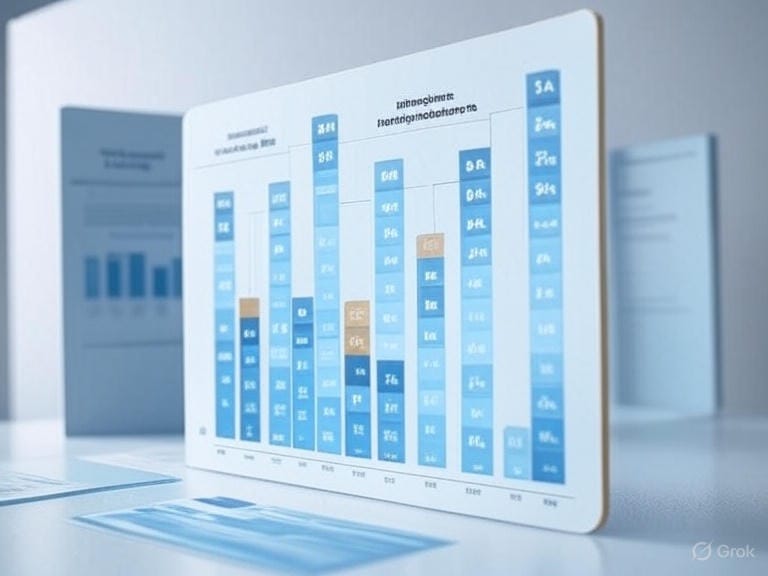
Backwards bloom. Forward doom.
